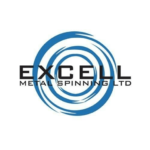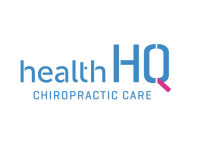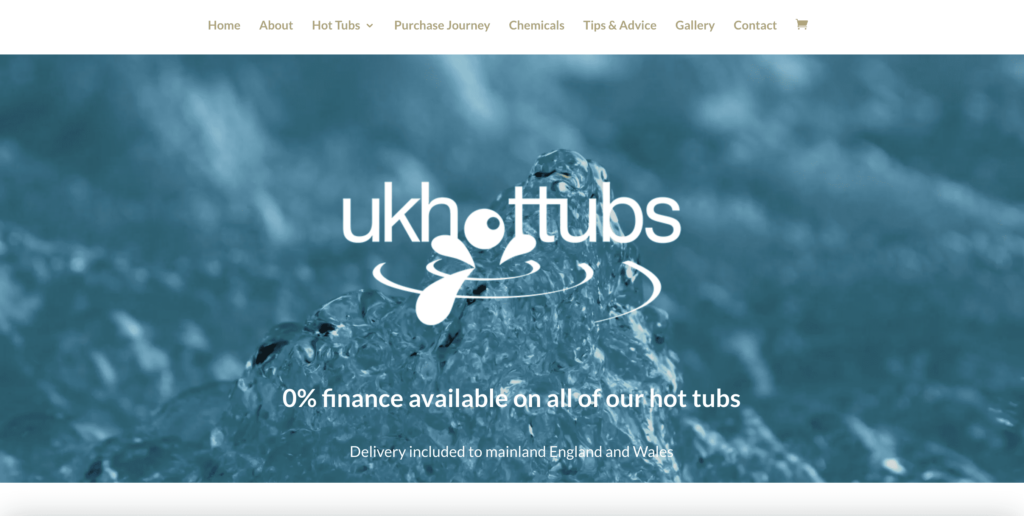In working with the team at Tillison Consulting, I’ve been really pleased with the communication from the team. I feel like we’re involved and always know what’s going on with our project and what we can do to improve the results we’re achieving. I’d definitely recommend them to any business looking to increase leads or sales online.”
Max Underhay – Sales Operation Manager, Excell Metal Spinning
In the online world, where countless websites are all trying to get noticed, it’s important to have a trustworthy local partner who can help you succeed and make your business grow.
We want to be part of your success

Search engine optimisation is vital for boosting your website’s visibility in online search results.
Our efficient SEO tactics, achieved through a smart mix of content and technical improvements over time, will:
Search Engine Optimsation efforts consist of four essential pillars, each pivotal in enhancing visibility and increasing website traffic.
Technical SEO is vital for SEO success as it focuses on making your data easily understood and accessible to search engines.
Covering everything from planning to refining meta titles, descriptions, alt tags, heading tags, and internal links, on-page optimization stands as a pivotal factor for achieving success.
In tough markets, it's vital to gather and nurture top-notch external links to your pages and content for a solid ranking.
Conducting research, devising a strategy, and implementing optimised page text and content to captivate customers throughout their purchasing journey.
Search Engine Optimisation offers a wide range of services tailored to your business. Some businesses benefit from straightforward Local SEO to boost local website traffic, while others require eCommerce SEO that targets national or global traffic to generate more sales and revenue.
Ideal for national businesses aiming to generate leads through focused, top-notch traffic.
Designed for businesses with a local presence, aiming to secure rankings on Google Maps and Google Search for local search phrases.
Geared towards businesses aiming to achieve rankings and traffic across multiple geographic regions and/or languages or currencies.
Tailored for eCommerce shops aiming to expand transactions and revenue by leveraging organic traffic.
Based on the platform your site uses, you'll require SEO experts to address the unique technical hurdles of each platform. Our SEO specialists are adept at handling various website platforms, but the following are where our expertise and experience truly shine.
Our dedicated WordPress SEO service caters to websites targeting local or national traffic.
Our eCommerce SEO service is tailored for websites created with WordPress & WooCommerce, aiming to boost traffic, transactions, and revenue.
Our eCommerce SEO service is specially crafted for websites constructed on Shopify, with the goal of enhancing traffic, transactions, and revenue.
Our eCommerce SEO service is custom-made for websites constructed on Magento 1 or Magento 2, aiming to heighten visibility, traffic, transactions, and revenue.

With ongoing SEO efforts, we’ve assisted numerous businesses in the Portsmouth & Hampshire region. Collaborating with these exceptional firms and achieving outstanding outcomes, we proudly assert our position as Hampshire’s premier SEO agency.
While we take pride in our SEO accomplishments, our offerings go further to encompass Pay-Per-Click, Social Media, and User Experience enhancements, all aimed at optimising your potential.

Located near Portsmouth and catering to Hampshire and beyond, UK Hot Tubs has witnessed a substantial surge in organic traffic, with an 85% rise in the latest evaluation. This surge has notably elevated leads and sales for hot tub spares, repairs, and maintenance.

Excell Metal Spinning, a company situated in Portsmouth, sought our expertise for SEO, Social Media, and Pay-Per-Click services. Remarkably, within a brief period, we nearly doubled the effectiveness of their campaigns.

Located in Fareham, adjacent to Portsmouth, Tailored Entertainment entrusted us with their SEO. By employing a combined AdWords and SEO strategy, this expert live music agency experienced a remarkable 340% surge in website traffic, subsequently boosting bookings and revenue.

Portsmouth Chiropractor, Health HQ, achieved a notable 31% surge in natural web traffic to their site. This accomplishment resulted from a strategic fusion of content generation and advanced SEO techniques. These initiatives effectively elevated their website’s vitality and allure, drawing in a greater influx of visitors.

Our SEO services propelled Swan Systems (situated in Fareham) to soar in the search engine rankings, achieving an average advancement of 25 positions across all website pages.

Brendoncare, a charitable organisation operating in Hampshire, manages a network of 10 care homes and community services spanning the South East region. Our SEO experts accomplished an impressive feat, enhancing the prominence of their primary search terms by a substantial 14%, while concurrently boosting the site’s health score by a significant 30%.
What to expect from our Portsmouth & Hampshire SEO Specialists
A target keyword signifies a word or phrase utilised by individuals to locate your website through search engines. Our foremost and pivotal responsibility is pinpointing this target keyword, a fundamental step in propelling your website higher in search rankings.
By enhancing your site’s structure, search engines gain clarity on the most pivotal pages within your website, streamlining their ranking process. Consequently, this facilitates the influx of top-tier traffic to your site, culminating in heightened sales opportunities.
Commencing with an initial scrutiny of your link profile, we proceed to secure novel, superior-grade links from pertinent external sites renowned for their credibility. This strategic process amplifies your website’s authority, thereby refining its standings within search engine rankings.
A blog entry, a dedicated webpage, a video clip, an illustrative graphic, or a presentation – these represent only a selection of content elements fundamental to any SEO endeavour. Crafting a content strategy becomes imperative to fortify your position, whether it’s in a specific geographical area or within your industry.
Centered on content, internal links, and sitemaps, our approach involves evaluating and enhancing every designated webpage throughout your site. This strategic process empowers you to contend effectively in progressively competitive sectors and establish pertinent significance for your desired keywords.
Through Google Tag Manager, we will integrate segments of code into your URLs. These code snippets facilitate external tracking, analysis, and reporting. We will provide guidance on utilizing the platform, ensuring accurate implementation of your codes.
Improving The Quality of Leads for Portsmouth & Hampshire based companies
“The Google AdWords and SEO campaigns work very well for us – the volume of traffic is important, but we’ve been more impressed with the quality of the leads we receive, which has vastly improved since we’ve been working with Tillison Consulting.
We had worked with other agencies before who weren’t nearly as pro-active as the team at Tillison. We’re busy running our business, so we’ve been really pleased with the frequency and quality of communication – it gives us the information and confidence we need to get on, knowing that they’re looking after growing our business online.”
Avon Potter – Director, UK Hot Tubs


Whether you’re a small regionally-oriented enterprise or a multi-national corporation, our team of SEO Specialist will work with you to understand your aims and objectives. We will help you significantly increase your organic website traffic and search engine rankings through a bespoke blend of content and technical optimisation.
Only a coordinated, integrated approach will achieve the success that most businesses hope to achieve through SEO. Being the best SEO agency in Hampshire, we’re proud of the successes and the significant wealth we’ve achieved for clients across the Portsmouth & Hampshire area, and we hope to include you among them.
Yes, the choice of domain name can indeed impact SEO (Search Engine Optimisation) in several ways:
Keywords in Domain: Including relevant keywords in your domain name can give search engines an idea of what your website is about. For example, if you sell handmade jewellery, having “handmadejewellery.co.uk” as your domain name could potentially boost your SEO for searches related to handmade jewellery.
Brand Identity and Trust: A memorable and brandable domain name can help establish trust with users and encourage them to click on your website in search results. This can indirectly affect SEO, as higher click-through rates (CTR) can signal to search engines that your site is relevant and valuable to users.
Domain Age and History: Older domains tend to have more authority and trust with search engines, which can positively affect SEO. Additionally, a domain’s history, including any past penalties or spammy activities, can impact its SEO performance.
Domain Extension: While not as critical as it once was, the domain extension (such as .co.uk, .org.uk, .net, etc.) can still influence SEO to some extent. Generally, .co.uk domains are seen as more trustworthy and have a slight advantage in SEO compared to other extensions.
Brand Signals: A domain name that aligns with your brand and business can help reinforce your brand identity, which in turn can improve user engagement metrics such as time on site and return visits. These positive user signals can indirectly impact SEO.
Overall, while the domain name is just one of many factors that contribute to SEO, it remains an important consideration when building and optimising a website for search engines.
Yes, SEO (Search Engine Optimisation) can complement Google Ads (formerly known as Google AdWords) in several ways:
Enhanced Quality Score: Google Ads employs a metric called Quality Score to determine ad rank and cost-per-click. A higher Quality Score can lead to lower costs and better ad placements. SEO can contribute to a higher Quality Score by improving the relevance and quality of the landing page, which is one of the factors considered in the Quality Score calculation.
Keyword Research: SEO entails extensive keyword research to identify the terms and phrases that users are searching for. This keyword research can also benefit Google Ads campaigns by helping to identify relevant keywords to target in ad campaigns, thereby improving ad targeting and performance.
Improved Ad Extensions: Ad extensions in Google Ads provide additional information to users and can enhance ad visibility and click-through rates. SEO efforts, such as creating informative and relevant content on your website, can provide valuable information to include in ad extensions like sitelinks, callouts, and structured snippets.
Enhanced Landing Page Experience: SEO often focuses on enhancing the user experience of landing pages to increase organic search traffic and conversions. These same principles can be applied to landing pages used in Google Ads campaigns, resulting in better user engagement, higher conversion rates, and improved ad performance.
Cross-Channel Insights: SEO and Google Ads campaigns can offer valuable insights into user behaviour and preferences across different channels. By analysing data from both SEO and Google Ads campaigns, marketers can gain a deeper understanding of their target audience and tailor their strategies accordingly for better overall results.
Yes, internal links can have a significant impact on SEO (Search Engine Optimisation) in several ways:
Enhanced Site Navigation: Internal links help search engine crawlers navigate and index your website more effectively. By providing clear pathways between different pages, internal linking ensures that all your content is discoverable by search engines, which can positively affect your site’s visibility in search results.
Distribution of Page Authority: When you link from one page to another within your website, you pass on a portion of the linking page’s authority (also known as PageRank) to the linked page. This can help distribute authority more evenly throughout your site, potentially boosting the rankings of individual pages in search results.
Keyword Relevance and Context: Internal links allow you to use relevant anchor text (the clickable text of a link) to provide context about the linked page’s content. By using keywords in your anchor text that accurately describe the linked page, you signal to search engines what the page is about, which can improve its relevance for those keywords.
Improved User Experience: Internal links help users navigate your website more easily, guiding them to related or complementary content that they may find useful. This can improve user engagement metrics such as time on site and reduce bounce rates, which are factors that search engines consider when ranking pages.
Consolidation of Link Equity: Through strategic internal linking, you can consolidate the link equity of multiple pages into a single authoritative page. By linking from less authoritative pages to more authoritative ones, you can boost the latter’s SEO performance and increase their chances of ranking well in search results.
Yes, blog content can be incredibly beneficial for SEO (Search Engine Optimisation) in several ways:
Fresh and Relevant Content: Search engines favour fresh content, and regularly updating your blog with new posts provides search engines with more content to index. This can increase the chances of your website being crawled more frequently, leading to improved visibility in search results.
Targeting Long-Tail Keywords: Blogs allow you to create content around a variety of topics and long-tail keywords (more specific, less competitive phrases). By targeting these long-tail keywords in your blog posts, you can attract highly targeted traffic to your website, improving its overall relevance and authority in the eyes of search engines.
Internal Linking Opportunities: Blog content provides ample opportunities for internal linking, allowing you to link to other relevant pages on your website. Internal links help search engines understand the structure of your site and distribute authority more effectively, which can improve the rankings of your other pages.
Earning Backlinks: High-quality blog content that provides value to readers has the potential to attract natural backlinks from other websites. Backlinks are an important ranking factor for search engines, and earning links from reputable websites can significantly improve your site’s authority and visibility in search results.
Increased User Engagement: Engaging blog content can keep visitors on your site longer, reduce bounce rates, and encourage social sharing and interaction. Positive user engagement signals are considered by search engines when determining the quality and relevance of a website, which can indirectly improve its SEO performance.
Positioning as an Authority: Consistently publishing high-quality blog content on topics relevant to your industry or niche can help establish your website as an authority in your field. This can lead to increased trust from both users and search engines, ultimately improving your site’s rankings and visibility.
Using both internal and external links on your site is generally recommended for several reasons:
Internal Links: Internal links help search engines understand the structure and hierarchy of your website. They guide users to other relevant pages within your site, increasing engagement and reducing bounce rates. Internal linking also distributes link equity (PageRank) throughout your site, helping to boost the authority and rankings of individual pages.
External Links: External links, also known as outbound links, can provide additional value to your users by directing them to authoritative and relevant external sources for more information. When you link to reputable websites, it can enhance the credibility and trustworthiness of your own site in the eyes of both users and search engines. Additionally, external links can help search engines understand the context and topic of your content by associating it with other authoritative sources.
View SEO as an ongoing investment, yielding gradual yet consistent enhancements in outcomes.
While the optimisation of pages and technical SEO might swiftly influence rankings, it’s important to note that achieving top rankings for every keyword won’t necessarily occur within the same timeframe.
Typical factors to consider are;
The current position of your page or site for a specific keyword matters. If your ranking is already satisfactory, you might notice some improvements in just a few days.
The amount of traffic and the degree of competition play a crucial role. If you’re aiming for high-demand search traffic in a competitive field, the progress might take time, but the effort will be rewarding in the long run.
The rivalry matters. When you’re contending against authoritative domains with finely-tuned pages and content, be ready for a more extended process to catch up.
Our team will collaborate with you to establish practical objectives that align with your budget, steering clear of unwinnable challenges that require substantial funding.
Page speed is indeed a ranking factor in Google’s search algorithm. Google has indicated that page speed has been a ranking factor for desktop searches since 2010, and it was subsequently introduced as a ranking factor for mobile searches in 2018 with the rollout of the mobile-first indexing approach.
Here’s why page speed matters for SEO:
User Experience: Faster-loading pages provide a better user experience. Users are more likely to engage with and stay on a website that loads quickly, reducing bounce rates and increasing the likelihood of conversions.
Mobile Friendliness: With the increasing prevalence of mobile devices for internet browsing, Google prioritises mobile-friendly websites in its search results. Page speed is crucial for mobile users who may have slower internet connections or limited data plans.
Crawl Budget: Google allocates a crawl budget to each website, determining how frequently and deeply its pages are crawled. Slow-loading pages can consume more of this crawl budget, potentially leading to fewer pages being indexed or updated in search results.
Core Web Vitals: Google has introduced Core Web Vitals as a set of user-focused metrics related to page speed, interactivity, and visual stability. These metrics, including Largest Contentful Paint (LCP), First Input Delay (FID), and Cumulative Layout Shift (CLS), directly measure aspects of page speed and user experience and are now integrated into Google’s ranking algorithms.
Competitive Advantage: Websites that load quickly have a competitive advantage in search engine rankings compared to slower-loading sites. Google aims to provide the best possible user experience, so faster sites are more likely to rank higher in search results.
Optimising your website for speed not only improves its search engine rankings but also enhances user experience, increases engagement, and boosts conversions. Therefore, it’s essential to monitor and improve your site’s page speed regularly to maintain its competitiveness in search results.
An alt tag, also known as an “alt attribute” or “alt text,” is an HTML attribute applied to an image tag within a webpage. Its purpose is to provide alternative text that describes the content and function of an image in case the image cannot be displayed to the user.
Alt tags serve several important functions:
Accessibility: Alt tags are crucial for web accessibility, as they provide text descriptions of images for users who rely on screen readers or who have images disabled in their web browsers. By including descriptive alt text, website owners ensure that visually impaired users can understand the content and context of images on the page.
SEO (Search Engine Optimisation): Search engines use alt tags to understand the content of images, as they cannot “see” images in the same way humans can. Descriptive alt text helps search engines index and rank images appropriately in image search results. Additionally, alt tags contribute to the overall relevance and context of a webpage, which can positively impact its search engine rankings.
User Experience: Alt tags provide valuable context for all users, not just those with disabilities or using screen readers. They help clarify the purpose and meaning of images, enhancing the overall user experience by providing additional information or context.
When creating alt tags, it’s essential to keep them concise, descriptive, and relevant to the content and function of the image. Aim to convey the essential information conveyed by the image in a clear and succinct manner. Avoid stuffing alt text with keywords or using generic phrases like “image” or “image of” without providing meaningful context. By crafting informative alt tags, website owners can improve accessibility, SEO, and user experience simultaneously.
It’s crucial to optimise your website for both desktop and mobile devices to ensure the best user experience and maximise your site’s performance in search engine results. Here’s why:
User Preference: With the increasing use of mobile devices for internet browsing, many users primarily access websites on smartphones and tablets. Failing to optimise your site for mobile devices can result in a poor user experience, leading to higher bounce rates and lower engagement.
Mobile-First Indexing: Google has adopted a mobile-first indexing approach, meaning it primarily uses the mobile version of a website’s content for indexing and ranking. If your site isn’t optimised for mobile, it may not perform as well in Google’s search results, impacting its visibility and traffic.
Responsive Design: Implementing responsive web design ensures your site adapts and displays correctly across various devices and screen sizes, including desktops, laptops, tablets, and smartphones. A responsive design eliminates the need for separate desktop and mobile versions of your site, simplifying maintenance and ensuring a consistent user experience across devices.
SEO Benefits: Optimising your site for mobile can have significant SEO benefits, including improved rankings in mobile search results and higher visibility for mobile users. Google considers mobile-friendliness as a ranking factor, so ensuring your site is mobile-friendly can help improve its search engine rankings overall.
User Engagement and Conversions: A mobile-friendly website is more likely to keep users engaged and encourage them to take desired actions, such as making a purchase, signing up for a newsletter, or contacting your business. By providing a seamless and enjoyable mobile experience, you can increase conversions and achieve your business goals.
SEO (Search Engine Optimisation) is worth investing in for several compelling reasons:
Increased Visibility and Traffic: SEO helps your website rank higher in search engine results pages (SERPs) for relevant keywords and phrases. This increased visibility means more potential customers can find your website when searching for products, services, or information related to your business.
Cost-Effective Marketing: Compared to traditional advertising methods like print ads or TV commercials, SEO is relatively cost-effective. Once your website ranks well in search results, you can attract organic traffic without continually paying for each click or impression, making SEO a sustainable long-term investment.
Higher Quality Traffic: SEO targets users who are actively searching for what your business offers, resulting in higher-quality traffic compared to outbound marketing strategies. By aligning your website’s content with user intent, SEO helps attract visitors who are more likely to convert into leads or customers.
Builds Trust and Credibility: Websites that appear at the top of search results are often perceived as more trustworthy and credible by users. By investing in SEO and improving your website’s rankings, you can enhance your brand’s reputation and authority in your industry.
Competitive Advantage: In today’s digital landscape, where the majority of consumers start their purchasing journey with an online search, having a strong SEO strategy gives you a competitive edge. By outranking your competitors in search results, you can capture a larger share of the market and attract more customers to your business.
Measurable Results: SEO provides valuable data and insights through tools like Google Analytics, allowing you to track your website’s performance, monitor keyword rankings, and measure the ROI of your SEO efforts. This data-driven approach enables you to make informed decisions and continuously improve your SEO strategy over time.
Adaptability and Longevity: Unlike some marketing tactics that may become outdated or ineffective over time, SEO is adaptable and can evolve along with changes in search engine algorithms and user behaviour. By staying up-to-date with best practices and algorithm updates, you can maintain and improve your website’s rankings for the long term.
SEO is worth investing in because it drives targeted traffic to your website, increases brand visibility and credibility, delivers measurable results, and provides a competitive advantage in the digital marketplace. Investing in SEO can yield significant returns and contribute to the long-term success of your business online.
Find out what else we can do for you

Our experienced specialists will significantly improve your return on investment through Google Ads management.

Get a detailed insight into your current organic rankings and understand what’s stopping your website from ranking higher.

Get a detailed insight into your current organic rankings and understand what’s stopping your website from ranking higher.

Learn how to use Google Analytics to understand your customers, and uncover the best ways to use this amazing tool with our experts.